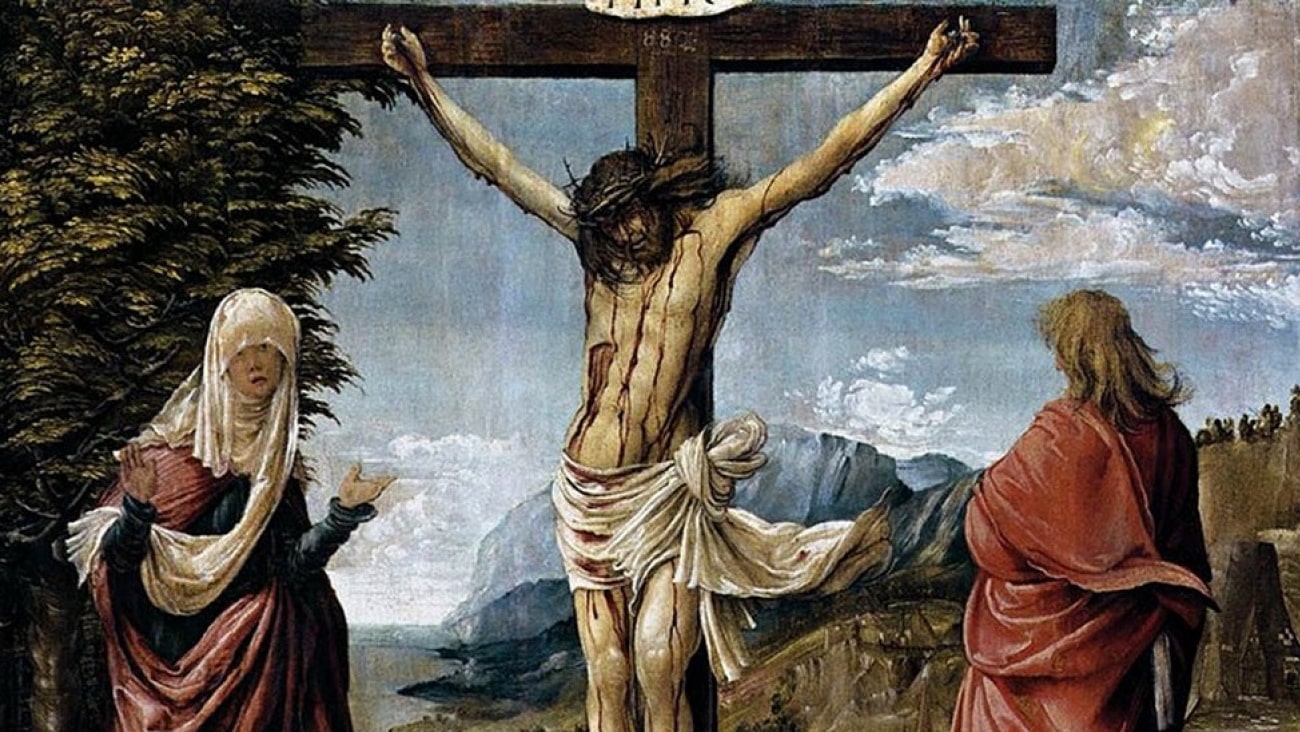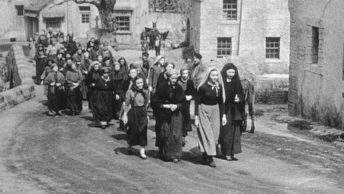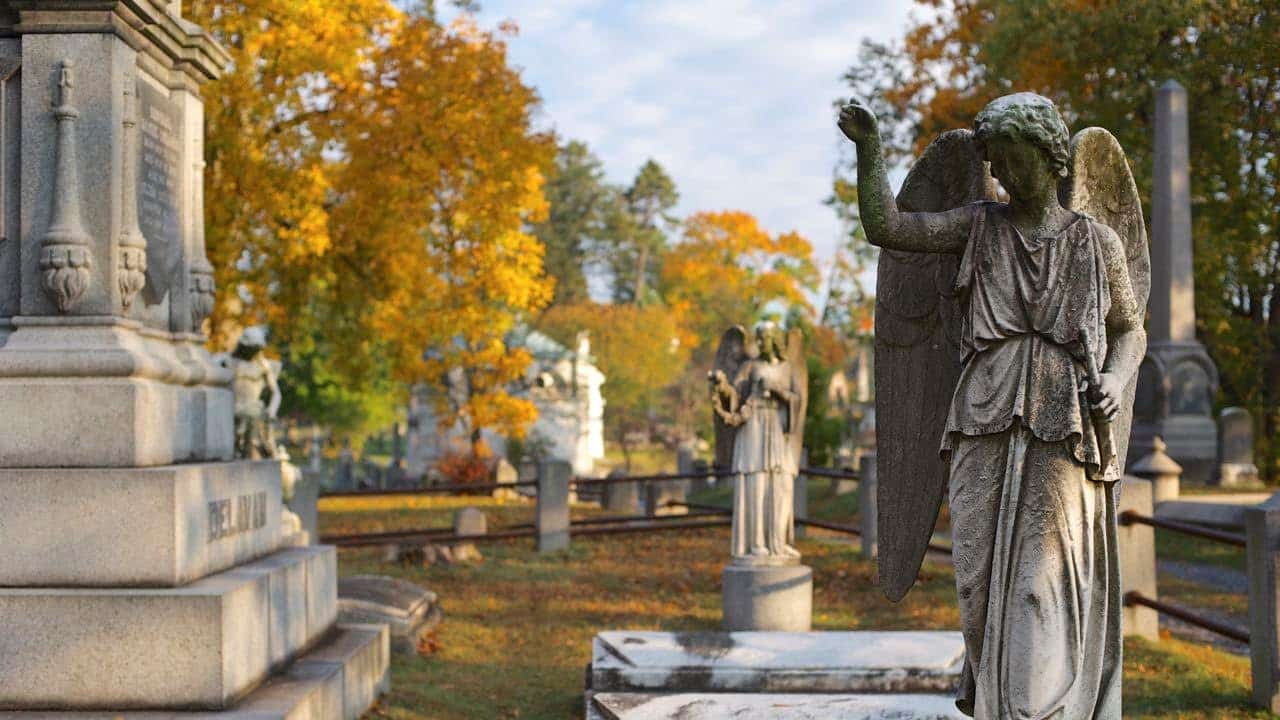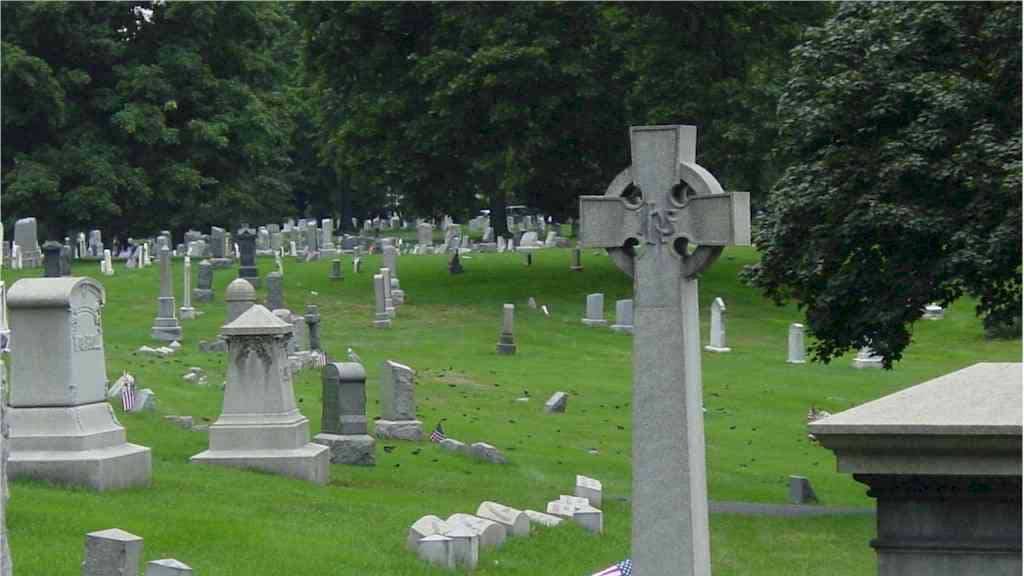Each Good Friday, we Christians ask ourselves: How would we have behaved? Would we have been among the faithful women remaining as Jesus breathed his last? Or would we, like many of Jesus’ closest friends, have fled the scene? While none of us know for certain, there seems a great likelihood that we would have played the anonymous power once described by Pope Benedict XVI in a Good Friday reflection. His Holiness wrote that:
Judas is neither a master of evil nor the figure of a demoniacal power of darkness but rather a sycophant who bows down before the anonymous power of changing moods and current fashion. But it is precisely this anonymous power that crucified Jesus, for it was anonymous voices that cried, Away with him! Crucify him!
Whatever our decision might have been, we know that on that first Good Friday, death came to Calvary. After unimaginable deception and torture, Jesus breathed His last—and died.
I once had a lengthy conversation with a funeral director regarding death and dying. At one point, he told me: “You know, deacon, we humans are both biological and spiritual; and that, at a certain point, our biological life—ends.” After nodding in agreement, I followed up with words that I have so often spoken to those who have lost a loved one; namely, that “there are no words” to express their loss. From a strictly biological perspective, when death occurs, that person (be it a husband, wife, father, mother, child, grandchild, or friend) is gone from their lives. And they are left to mourn and sort things out.
Following a death, each of us, in our own way, needs to express this (to others). Once, I entered a funeral home to preside over the Vigil for a parishioner who had been blessed with a large family, including many daughters. Quickly, I was greeted by one of his daughters who did just that: “Deacon, my father died.” There is also a need to “work through” and “process” the deaths of our lives. For me, in the days and weeks following the funeral of my son, I would walk into his nursery, close the door, and slide down the wall next to his crib—and weep. Truly, when death arrives in our lives, “there are no words.”
One person who has contemplated and written about death, in considerable depth, is the late Swiss-American psychiatrist, Dr. Elizabeth Kubler-Ross. Through her research, she identified five stages that surround our own eventual biological death.
Denial and Isolation—“No, not me.”
Anger—“Why me.”
Depression—“Yes, me.”
Resignation—“I don’t want to die, but I’m tired of fighting it.”
Acceptance—“No one gets out of this life—alive.” (my words)
On Good Friday, as we mourn the Passion and death of our Lord, who died for our sins, we know that something greater than mere biological death is unfolding that holds eternal implications for each of us!
And that something greater is spiritual. For those with eyes to see, it is though God has flipped a Divine Light switch to—ON! By doing so, He brings the theological virtue of Hope (whereby we desire the kingdom of heaven and eternal life) to fruition! But unlike biological death, for which “there are no words,” Job (19:25-26) has no problem expressing this new reality: “I know that my Redeemer lives, and from my flesh I shall see God.”
On Good Friday, through the Holy Cross, God prepares His Easter table. In short order, we will find Resurrection- our pathway to eternal life. Upon our own death, we shall find the unblemished Lamb of God, Jesus Christ, welcoming us into the Kingdom of Heaven, where we will live with Him forever.
Praised be God!








